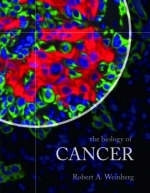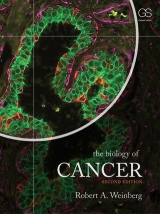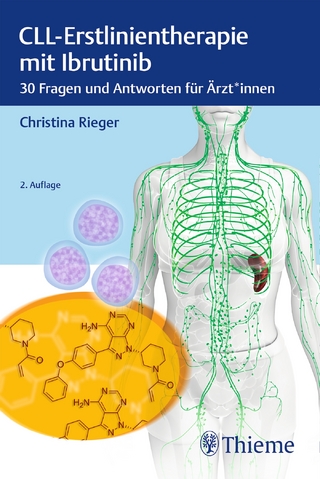
The Biology of Cancer
Garland Publishing Inc (Verlag)
978-0-8153-4078-2 (ISBN)
- Titel erscheint in neuer Auflage
- Artikel merken
The Biology of Cancer is a textbook for undergraduate and graduate biology students as well as medical students studying the molecular and cellular bases of cancer. The book presents the principles of cancer biology in an organized, cogent, and in-depth manner. The clarity of writing and the lucid full-color art program make the book accessible and engaging. The information unfolds through the presentation of key experiments which give readers a sense of discovery and provides insights into the conceptual foundation underlying modern cancer biology.
The Biology of Cancer synthesizes the findings of three decades of recent cancer research and proposes a conceptual framework from which to teach about these discoveries. It provides the necessary structure, organization, and content for a course on cancer biology for advanced undergraduates and beginning doctoral students. The book is comprehensive and offers many pedagogical features to assist teaching and learning. The book includes many recent and topical references, and is intended to empower the student to move directly into the primary research literature.
The text is up-to-date and provides current information on topics such as tumor stem cells and recently introduced chemotherapeutics. State-of-the-art techniques are discussed throughout. Modern biomedical research is explored, helping readers to hone their analytical abilities and to assimilate and think clearly about complex biological processes. The Biology of Cancer provides insights into many aspects of immunology, developmental biology, and neurobiology.
The exceptional full-color art program contains many images published for the first time. The book is extensively illustrated with schematic drawings, micrographs, computer-generated models and graphs. The pieces were chosen to support and clarify the concepts, as well as to supply additional interest.
Besides its value as a textbook, The Biology of Cancer will be a useful reference for individuals working in biomedical laboratories, and for clinical professionals.
Dr. Robert A. Weinberg is a founding member of the Whitehead Institute for Biomedical Research and the Daniel K. Ludwig Professor for Cancer Research at the Massachusetts Institute of Technology (MIT). He is an internationally recognized authority on the genetic basis of human cancer. Dr. Weinberg and his colleagues isolated the first human cancer-causing gene, the ras oncogene, and the first known tumor suppressor gene, Rb, the retinoblastoma gene. The principal goal of his research program is to determine how oncogenes, their normal counterparts (proto-oncogenes), and tumor suppressor genes fit together in the complex circuitry that controls cell growth. More recently, his group has succeeded in creating the first genetically defined human cancer cells. He is particularly interested in applying this knowledge to improve the diagnosis and treatment of breast cancer. Dr. Weinberg is the author or editor of five books and more than 325 articles. His three most recent books, intended for a lay audience, are "One Renegade Cell", "Racing to the Beginning of the Road: The Search for the Origin of Cancer" and "Genes and the Biology of Cancer," co-authored with Dr. Harold E. Varmus, former Director of the National Institutes of Health. He is an elected Member of the U.S. National Academy of Sciences and Fellow of the American Academy of Arts and Sciences. Among Dr. Weinberg's many honors and awards are the Discover Magazine 1982 Scientist of the Year, the National Academy of Sciences/U.S. Steel Foundation Award in Molecular Biology, the Sloan Prize of the General Motors Cancer Research Foundation, the Bristol-Myers Award for Distinguished Achievement in Cancer Research, the Harvey Prize from the American Society for Technion Israel Institute of Technology, the Gairdner Foundation International Award, the Keio Medical Foundation Prize, the 1997 National Medal of Science, the City of Medicine Award and the 2004 Wolf Foundation Prize and the Prince of Asturias Science Prize. He has served on scientific advisory boards for the Institute of Molecular Pathology in Vienna, Austria, the Weizmann Institute in Rehovot, Israel, and the Massachusetts General Hospital in Boston. Born in Pittsburgh in 1942, Dr. Weinberg received his BS (1964) and PhD (1969) degrees in Biology from MIT. He did postdoctoral research at the Weizmann Institute and the Salk Institute in La Jolla, California, and then returned to MIT in 1972. In 1982, he was appointed Professor of Biology at MIT and also became one of the five original Members of the Whitehead Institute. He has been an American Cancer Society Research Professor at Whitehead and MIT since 1985.
1. The Biology and Genetics of Cells and Organisms
2. The Nature of Cancer
3. Tumor Viruses
4. Cellular Oncogenes
5. Growth Factors and their Receptors
6. Cytoplasmic Signaling Circuitry Programs Many of the Traits of Cancer
7. Tumor Suppressor Genes
8. pRb and Control of the Cell Cycle Clock
9. p53 and Apoptosis: Master Guardian and Executioner
10. Eternal Life: Cell Immortalization and Tumorigenesis
11. Multistep Tumorigenesis
12. Maintenance of Genomic Integrity and the Development of Cancer
13. Dialogue Replaces Monologue: Heterotypic Interactions and the Biology of Angiogenesis
14. Moving Out: Invasion and Metastasis
15. Crowd Control: Tumor Immunology and Immunotherapy
16. The Rational Treatment of Cancer
| Erscheint lt. Verlag | 20.7.2006 |
|---|---|
| Zusatzinfo | 800 Illustrations, color |
| Sprache | englisch |
| Maße | 216 x 279 mm |
| Gewicht | 2054 g |
| Themenwelt | Medizin / Pharmazie ► Medizinische Fachgebiete ► Onkologie |
| ISBN-10 | 0-8153-4078-8 / 0815340788 |
| ISBN-13 | 978-0-8153-4078-2 / 9780815340782 |
| Zustand | Neuware |
| Informationen gemäß Produktsicherheitsverordnung (GPSR) | |
| Haben Sie eine Frage zum Produkt? |
aus dem Bereich



